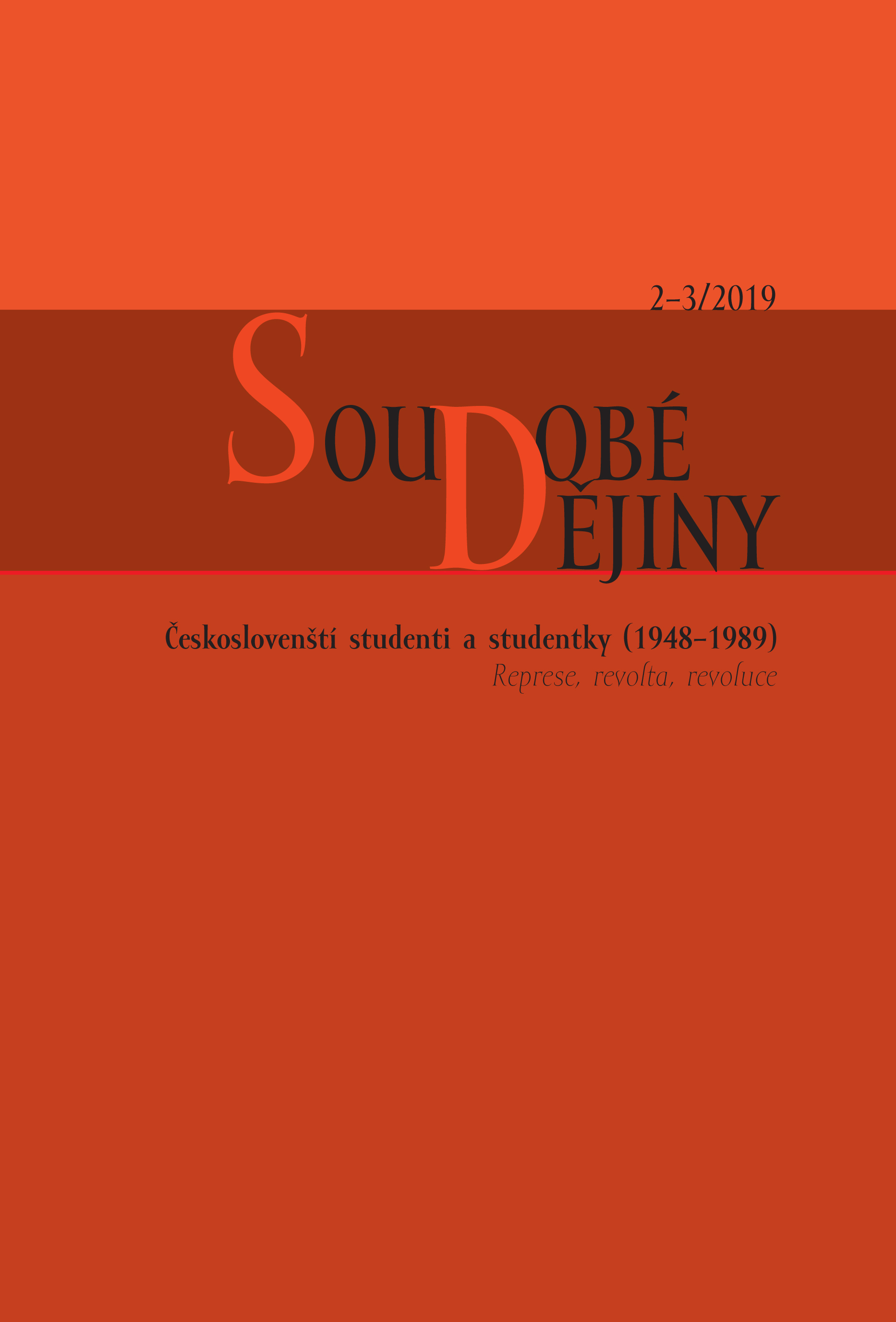Sametová zkušenost
The "Velvet" Experience
Student revolutionaries of November 1989, Václav Havel and (non-political) politics
Author(s): Jana Wohlmuth MarkupováSubject(s): History, History of ideas, Oral history, Political history, Recent History (1900 till today), Special Historiographies:, Post-War period (1950 - 1989), Transformation Period (1990 - 2010), History of Communism, Post-Communist Transformation
Published by: AV ČR - Akademie věd České republiky - Ústav pro soudobé dějiny
Keywords: Czech students; Velvet Revolution; Václav Havel; civil society; Oral History
Summary/Abstract: The authoress presents partial results of an oral history time-lapse research project involving a hundred narrators from among former university students who participated in the students’ strike in November 1989, one of the principal triggers of the so-called Velvet Revolution in Czechoslovakia. In doing so, she mainly draws from her chapter in the forthcoming book being prepared by a team of authors led by Miroslav Vaněk and titled Sto studentských evolucí: "Vysokoškolští studenti roku 1989. Životopisná vyprávění v časosběrné perspektivě" [A hundred students’ evolutions: University students of 1989. Biographical narrations in a time-lapse perspective] (Prague, Academia 2019), which is a follow-on of a similar project, "Sto studentských revolucí" [A hundred students’ revolutions], implemented twenty years ago. The authoress first briefly introduces the project, recaps its findings so far, and focuses on how the narrators construe the effect of their revolutionary experience on their lives. In her opinion, interviews with the narrators suggest that the former student revolutionaries assigned key and positive importance of the Velvet Revolution for their personal and social evolution. However, they differ in how they reflect their revolutionary experience in their own civic attitudes, particularly in terms of their personal involvement in the public sphere. The authoress distinguishes three ideal type strategies in their attitudes to their own past, which she labels “revolution as a commitment”, “revolution as a duty fulfilled”, and “revolution as a prepared coincidence”. While the first two groups (also the most numerous ones) are characterized by the narrators’ continuing interest in public affairs, and they differ only in whether should be personally involved in public affairs (the first group) or leave the task to younger generations (the second group), the third group questions the very premise that activities of citizens can trigger desirable changes in the society. In addition, the authoress focuses on forms and transformations of public activities of the narrators since 1989, examining their potential inspirations. In her opinion, the key factor determining the narrators’ opinions and attitudes in this regard is their personal experience of the Velvet Revolution which is, as a rule, personified and symbolized by the person of the dissident and first post-Communist president Václav Havel (1936–2011). Using Havel’s texts of the early 1990s and his thoughts about the civic society and non-political politics, she analyses interviews with the former student revolutionaries, attempting to find why even the narrators belonging to the first (most committed) group generally gravitate toward the role of citizen activists and, save for a few exceptions, systematically avoid traditional party politics.
Journal: Soudobé Dějiny
- Issue Year: XXVI/2019
- Issue No: 2+3
- Page Range: 257-287
- Page Count: 31
- Language: Czech

